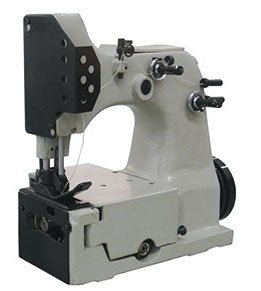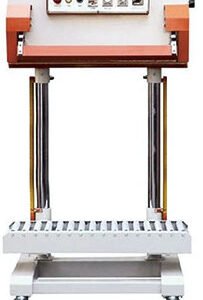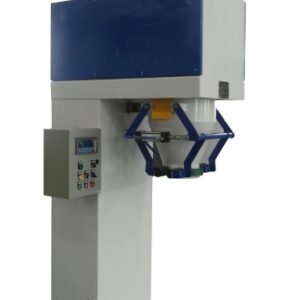Description
Technical Specifications & Performance Data
Machine Configuration & Capacity
-
Speed Range: 20-120 bags per minute (depending on product and bag size)
-
Bag Size Range: 50mm × 80mm to 300mm × 450mm
-
Weight Capacity: 100g to 5,000g with ±0.5-1.0% accuracy
-
Power Requirements: 3-15 kW (depending on automation level)
Weighing & Filling Systems
-
Weighing Technology: Multi-head weighers (10-24 heads), linear weighers, or auger fillers
-
Accuracy: ±0.1g to ±2.0g depending on product characteristics
-
Filling Methods: Volumetric, auger, impeller, or gravity flow
-
Product Compatibility: Free-flowing powders, granules, flakes, and small pieces
Sealing & Material Handling
-
Sealing Methods: Heat seal, zipper application, or adhesive closure
-
Film Handling: Pre-made pouches or form-fill-seal capability
-
Material Types: Laminated films, polyethylene, polypropylene, foil
-
Film Roll Capacity: 400mm diameter maximum, automatic splicing available
Application-Specific Configurations
| Industry Application | Typical Speed | Accuracy Requirements | Special Features | Common Materials |
|---|---|---|---|---|
| Snack Foods | 80-120 bags/min | ±1.0g | Nitrogen flushing, checkweigher integration | Metallized films, laminates |
| Coffee & Tea | 40-80 bags/min | ±0.2g | Degassing valve application, aroma protection | Multi-layer foil laminates |
| Pet Food | 60-100 bags/min | ±1.5g | Heavy-duty construction, easy clean design | Polyethylene, polypropylene |
| Chemical Products | 20-60 bags/min | ±0.5g | Dust extraction, explosion-proof option | Barrier films, coated papers |
| Pharmaceuticals | 30-70 bags/min | ±0.1g | GMP compliance, cleanroom compatibility | Medical-grade films |
Operational Performance:
-
Changeover Time: 15-30 minutes between product types
-
Material Utilization: 98-99.5% efficiency
-
Uptime Performance: 90-95% in optimized operations
-
Reject Rate: 0.5-2.0% depending on product characteristics
Advanced Features & Technological Integration
Control System & Automation
-
PLC Platform: Touchscreen HMI with recipe storage (100+ recipes)
-
Production Monitoring: Real-time OEE tracking and reporting
-
Remote Access: Network connectivity for troubleshooting and updates
-
Data Management: Production reports, material usage tracking, quality data
Quality Assurance Systems
-
Checkweighers: Integrated weight verification and rejection
-
Metal Detection: Sensitivity to 1.0mm ferrous, 1.5mm non-ferrous
-
Vision Inspection: Print registration verification, seal integrity checking
-
Statistical Process Control: Real-time quality trend analysis
Hygiene & Safety Features
-
Sanitary Design: Stainless steel construction, radiused corners
-
Quick Disassembly: Tool-free access for cleaning and maintenance
-
Safety Interlocks: Guard switches, emergency stop circuits
-
Noise Control: <75 dB in operation with acoustic enclosures
Economic Analysis & Operational Benefits
Cost Efficiency Metrics
-
Labor Reduction: 1-3 operators saved through automation
-
Material Savings: 3-8% reduction in film and product waste
-
Energy Consumption: 5-12 kWh during typical operation
-
Maintenance Costs: 2-4% of initial investment annually
Return on Investment
-
Capital Investment: $50,000-$250,000 depending on features
-
Payback Period: 12-24 months in typical applications
-
Productivity Increase: 200-400% compared to manual packaging
-
Quality Improvement: 50-80% reduction in packaging defects
Case Study – Specialty Coffee Roaster:
After implementing an automated small bag packing system:
-
Packaging speed increased from 15 to 60 bags per minute
-
Product giveaway reduced from 2.5% to 0.8%
-
Labor costs decreased by 65%
-
Customer complaints for underweight packages eliminated
Maintenance & Reliability Engineering
Preventive Maintenance Schedule
-
Daily: Cleaning, lubrication check, visual inspection
-
Weekly: Seal jaw maintenance, film path inspection, sensor verification
-
Monthly: Drive system inspection, bearing checks, calibration verification
-
Annually: Complete overhaul and performance validation
Component Life Expectancy
-
Seal Jaws: 6-12 months depending on film type
-
Cutting Blades: 3-6 months before sharpening/replacement
-
Drive Components: 3-5 years with proper maintenance
-
Control System: 7-10 years service life
Technical Support & Service
-
Training: Comprehensive operator and maintenance programs
-
Documentation: Complete technical manuals and parts lists
-
Remote Support: Online diagnostics and troubleshooting
-
Spare Parts: Global availability with 24-48 hour emergency service
Sustainability & Environmental Considerations
Resource Efficiency
-
Material Optimization: Advanced nesting algorithms reduce film waste
-
Energy Management: High-efficiency servos and smart power management
-
Recyclability: Compatibility with sustainable and recyclable materials
-
Waste Reduction: Precise weighing minimizes product loss
Environmental Compliance
-
Food Safety: Meets FDA, EU, and other international standards
-
Material Compliance: Compatible with food-grade and recyclable films
-
Energy Standards: Conforms to international energy efficiency requirements
-
Emissions Control: Low VOC emissions in operation
Future Development & Industry Trends
Technology Evolution
-
Artificial Intelligence: Machine learning for predictive maintenance and optimization
-
Digital Integration: Cloud connectivity for real-time performance monitoring
-
Advanced Robotics: Automated pack-off and palletizing integration
-
Smart Packaging: Integration with RFID and track-and-trace technologies
Market Adaptation
-
E-commerce Ready: Packaging optimized for direct-to-consumer shipping
-
Sustainability Focus: Compatibility with biodegradable and compostable materials
-
Flexibility Demands: Quick changeover for small batch production
-
Global Standards: Compliance with international packaging regulations
The small bag packing machine continues to evolve as an essential technology in modern manufacturing, providing the critical link between production and retail distribution. Its ability to combine speed, accuracy, and flexibility makes it indispensable for companies seeking to compete in today’s fast-moving consumer markets. As packaging requirements become increasingly sophisticated, these machines will continue to incorporate new technologies that enhance efficiency, improve sustainability, and ensure product protection throughout the supply chain.






Reviews
There are no reviews yet.